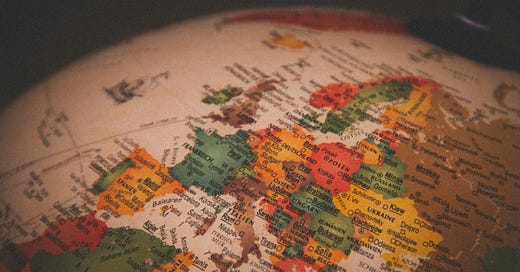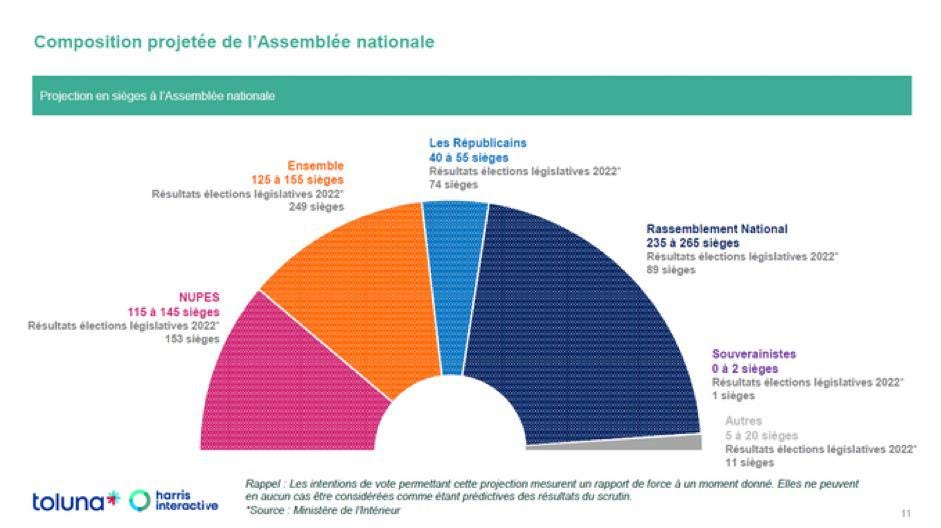The European Elections: Progress for Nationalism Continent Wide!
Progressing into the new, nationalist, era
The weekend-long elections in the European Union were a fantastic success, with nationalist, national-conservative, and populist parties gaining significant ground across the continent.
Not only did these parties, many of which we will look at in some depth, gain ground in the European Parliament, but also in local elections, and in some cases the shift was so large that governments have resigned and elections have been called. Europe is shifting, quite rapidly, into a new era of politics where the rise of what the media calls “far-right” parties is coming to dominate the politics of the continent.
France:
Marine Le Pen’s National Rally (formerly known as the National Front) was one of the most significant victors of the evening. National Rally increased their share of France’s 81 European parliament seats from 23 to 30, bringing in more than 7.7 million votes and accounting for 31.47% of all the votes cast in France.
Éric Zemmour’s National Conservative Party, Reconquête, also entered the race and received more than 1.3 million votes and took a total of 5 seats in France. It is also worth noting that Marine Le Pen’s niece, Marion Marechal Le Pen is a member of this party.
In total nationalist and national conservative parties of significant standing took some 37% of the vote in the French EU election. They garnered more than 9 million votes and managed to bring down the government of France in the process.
France’s deeply unpopular president, Emmanuel Macron, has dissolved France’s parliament and triggered a national election, the first round of which will take place on June 30th.
Recent Harris Interactive polling shows that National Rally, led formally by Jason Bardella, could garner as many as 265 seats and be the largest party in the French parliament by a margin of 110+ seats.
Bardella, 28, is much more right-wing than Madame Le Pen. He has spoken against same-sex unions and in favor of a referendum on the topic, he is skeptical of the utility of free trade, and most importantly he regularly speaks about population replacement in his speeches.
Bardella has defended Generation Identity, an ‘offense’ for which his posts and account were temporarily blocked and suspended by Facebook.
Ireland:
Even more incredible gains were made in Ireland, particularly on the local level where several candidates, including avowed pro-Western/ethnic nationalists, were able to win seats.
Patrick Quinlan, a longtime member of the National Party, was able to secure a seat on the Dublin City Council and is far from the only nationalist to do so over the course of the evening.
Malachy Steenson, Glen Moore, and Gavin Pepper also secure seats, though they are not affiliated with the national party they do describe themselves as some shade of nationalist.
Many other candidates from the National Party, such as Stephen Redmond, managed to do quite well in the initial stages before being eliminated as the counts went forward.
Germany:
Nationalist and so-called “far-right” parties also did quite well in Germany, namely the AfD (Alternative for Germany). AfD managed to increase its vote share by 5% compared to the previous 2019 European Elections and secured 15 seats, four more than it previously held. In total, the AfD walked away with 15.89% of the total vote in Germany and more than 6.3 million Germans cast their ballot for the party, putting it in second place behind the Christan Democratic Union (the party of former Chancellor Angela Merkel).
AfD is a party of a great many complications, with ideological wings, state surveillance, and demonization by the German media often attempting to crush the party from within and without, but it is not without its heroes.
Björn Höcke, the AfD leader in Thuringia, is one of the party’s foremost figures. Höcke believes that demographics matter and that Germany can not continue as a nation-state if Germans do not populate it.
Broader Commentary:
Gains were made in other countries as well. PVV made gains in the Netherlands, though Geert Wilders’s recent commentary about prioritizing Israel may make that a less than celebratory development for nationalists. The government of Belgium resigned after nationalist (regionalist) parties gained significant seats in Brussels, and in Austria, it was nationalist parties that came out on top as well.
Still, Europe’s nationalist and national conservative parties remain deeply divided, both internally and between themselves, over key issues such as Ukraine, Israel, or social spending.
Within National Rally there is a pro-American bent around Jason Bardella, while Marine Le Pen would prefer to move away from the American-led order. Similarly, in Germany, AfD politicians have wildly differing views on the conflict in Ukraine.
What is significant for nationalist, and for those dedicated to implementing policies and programs to reverse the Great Replacement and begin the project of reconstituting a coherent West, is that the people of Europe are exploring their options and moving ever more steadily to the nationalist right.
It will be some time before politicians prioritize Israel is a thing of the past. And while the Great Replacement is ever more recognized by Europe’s publics it will still be some years before her “far-right” politicians discuss the topic without resorting to intimations and indirect phrases.
In the meantime, nationalists must keep pushing the window of acceptable discourse in our direction while those nationalists who have been elected, such as Patrick Quinlan, strive to set a positive example of what nationalism can accomplish when in office.
White Papers is attempting to double our donor base this summer! Please Support our mission to take on more writers and policy experts:
Zelle: whitepapersinstitute@protonmail.com
Buy us a coffee: https://www.buymeacoffee.com/wppi
Linktree: https://linktr.ee/wppi
Snail Mail: White Papers Policy, PO Box 192, Hancock, MD 21750







I hope we can take a discussion about the situation for the nationalists groups after the European elections,like this from Off Guardian;https://off-guardian.org/2024/06/10/discuss-the-eu-elections-and-the-rise-of-the-far-right/
It seems to me that this article is a bit to positive?
Is there anyone else who has some views on this very importent question for our cause?